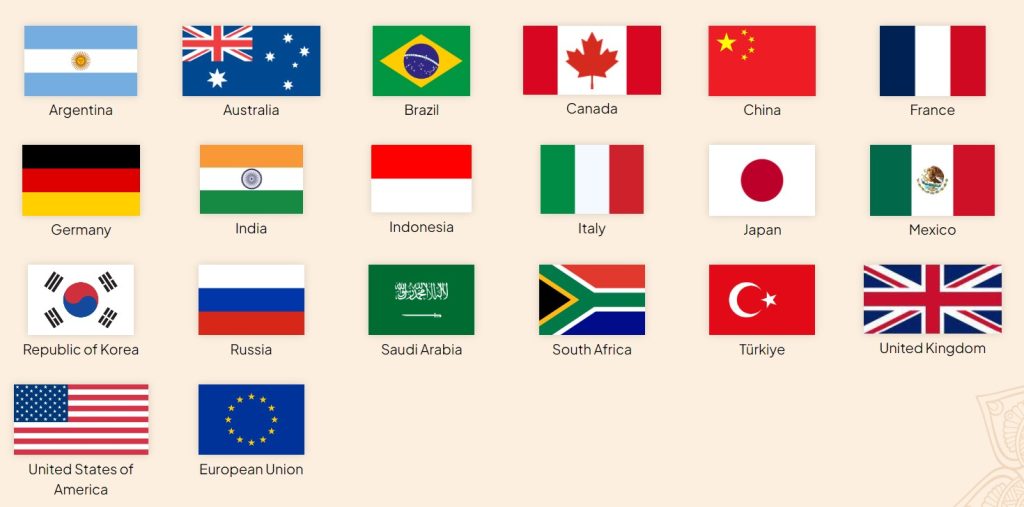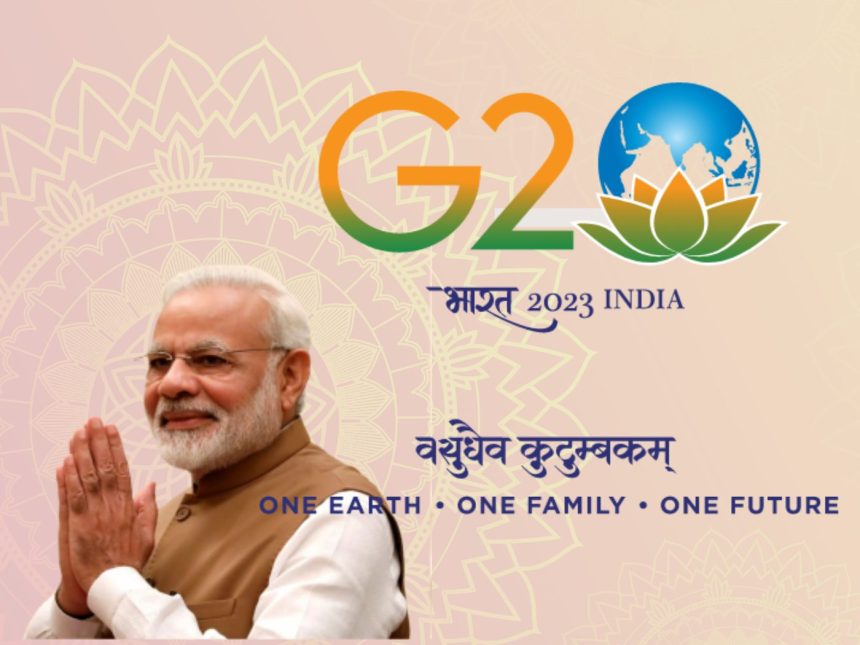Introduction:
The G20 Summit is a forum of the world’s largest and most powerful economies, representing over 80% of global economic output. It’s a platform where leaders from these countries meet annually to discuss economic, financial, and political issues that affect the entire world. The G20 has become an important venue for international cooperation on matters related to economic growth and stability. In this article, we will delve into what the G20 is, its significance, its history, and its future perspective.
What is the G20 Summit?
The G20 (Group of 20) is an international forum composed of 19 of the world’s largest economies and the European Union (EU). It was formed in 1999 as a response to the financial crisis of the late 1990s. The G20 represents a diverse range of economies, including emerging markets, advanced economies, and developing countries.
The G20 Summit is the annual meeting of the G20 leaders, where they discuss economic and financial issues affecting the world. During the summit, leaders engage in dialogue, exchange views and reach consensus on critical economic and financial matters. The G20 is one of the largest forums for international economic cooperation, and its decisions have a far-reaching impact on the global economy.
G20 Members
The Group of Twenty (G20) comprises 19 countries (Argentina, Australia, Brazil, Canada, China, France, Germany, India, Indonesia, Italy, Japan, Republic of Korea, Mexico, Russia, Saudi Arabia, South Africa, Turkey, United Kingdom and United States) and the European Union. About two-thirds of the world’s population and 85% of the global GDP are represented by G20 members.

The Significance of the G20 Summit:
The G20 is significant for several reasons. Firstly, it provides a platform for the world’s largest economies to come together and address global economic and financial challenges. The G20 leaders can pool their resources and expertise to find solutions to problems that are affecting the entire world. Secondly, the G20 is unique in that it includes both advanced economies and emerging markets. This means that leaders from both developed and developing countries can engage in discussions and find solutions to economic problems together.
Thirdly, the G20 has a wide reach, as its decisions impact not just its member countries but also the entire world. This makes the G20 a crucial venue for international economic cooperation and decision-making. The G20’s decisions also set the stage for other international organizations and forums, such as the International Monetary Fund (IMF) and the World Trade Organization (WTO), to take action.
History of the G20 Summit :
The G20 was created in 1999 as a response to the financial crisis of the late 1990s. The first meeting of G20 leaders was held in Berlin in December 1999. The G20 was created as a platform for finance ministers and central bank governors to discuss international financial and economic issues. In 2008, the G20 leaders’ summit was held for the first time, in response to the global financial crisis. Since then, the G20 has become an important forum for international economic cooperation, and its leaders’ summits have become a crucial event in the global economic calendar.
1999: The G20 was formed in response to the financial crisis of the late 1990s. The first meeting of G20 finance ministers and central bank governors was held in Berlin in December 1999. The main agenda for this meeting was to discuss international financial and economic issues and to find solutions to the financial crisis.
2008 Washington G20 summit: The first G20 leaders’ summit was held in Washington, D.C. in November 2008, in response to the global financial crisis. The main agenda for this summit was to address the global financial crisis and to find ways to restore stability to the global financial system. The leaders agreed to take coordinated action to address the crisis, including increasing resources for the International Monetary Fund (IMF) and taking steps to improve financial regulation.
2009 London & Pittsburgh G20 summit: The second and third G20 leaders’ summit was held in London and Pittsburgh in April 2009 . The main agenda for this summit was to address the global financial crisis and to find ways to revive the global economy. The leaders agreed to take coordinated action to stimulate the global economy, including increasing spending and lowering interest rates. The London Summit aims were to bring together leaders of the world’s major economies and key international institutions to take the collective action necessary to stabilize the world economy and secure recovery and jobs.
2010 Toronto and Seoul G20 summit: The forth and fifth G20 leaders’ summit was held in Toronto and Seoul in June 2010. The main agenda for this summit was to address the global economic recovery and to find ways to promote sustainable economic growth. The leaders agreed to implement measures to reduce fiscal deficits and to reform the international monetary system.
2011 Cannes G20 summit: The sixth G20 leaders’ summit was held in Cannes in November 2011. The main agenda for this summit was to address the ongoing financial crisis in Europe and to find ways to support economic growth. The leaders agreed to take coordinated action to support the economies of the European Union (EU) and to improve the stability of the global financial system.
2012 Los Cabos G20 summit: The seventh G20 leaders’ summit was held in Los Cabos, Mexico in June 2012. The main agenda for this summit was to address the ongoing economic crisis in Europe and to find ways to promote economic growth and stability. The leaders agreed to take coordinated action to support the European economy and to improve the stability of the global financial system. Main theme of this summit was
- The economic stabilization and structural reforms for growth and employment.
- Strengthening financial systems and promoting financial inclusion to boost economic growth.
- Improve the international financial architecture in an interconnected global economy.
- Reinforce food security and mitigate the volatility of the price of raw material.
- Promote sustainable development, green growth and the fight against climate change.
2013 St. Petersburg G20 summit: The eighth G20 leaders’ summit was held in St. Petersburg, Russia in September 2013. The main agenda for this summit was to address the global economic recovery and to find ways to promote sustainable economic growth. The leaders also discussed issues related to trade and investment, as well as financial regulation and stability. The summit was dominated by questions regarding the Syrian civil war and any potential international reaction to the Ghouta chemical attacks.
2014 Brisbane G20 summit: The ninth G20 leaders’ summit was held in Brisbane, Australia in November 2014. The main agenda for this summit was to address the global economic recovery and to find ways to promote sustainable economic growth. The leaders also discussed issues related to trade and investment, as well as financial regulation and stability. With the Brisbane Action Plan and associated growth strategies, the G20 committed to increasing GDP by more than 2% over five years.
2015 Antalya G20 summit: The tenth G20 leaders’ summit was held in Antalya, Turkey in November 2015. The main agenda for this summit was to address the global economic outlook and to find ways to promote sustainable economic growth. As part of the “Enhancing Resiliency” session, leaders discussed financial regulations, international taxation, anti-corruption, and IMF reform, with trade and energy topping the agenda for the working lunch where the final summit communiqué and Antalya Action Plan were adopted.
2016 Hangzhou G20 summit: The eleventh G20 leaders’ summit was held in Hangzhou, China in September 2016. The main agenda for this summit was to address the global economic outlook and to find ways to promote sustainable economic growth. The leaders also discussed issues related to trade and investment, as well as financial regulation and stability. In addition to the endorsement of the G20 Action Plan on Sustainable Development for the 2030 Agenda, the outcomes symbolized a spirit of cooperation to face challenges and chart a course for the world economy.
2017 Hamburg G20 summit: The twelfth G20 leaders’ summit was held in Hamburg, Germany in July 2017. The main agenda for this summit was to address the global economic outlook and to find ways to promote sustainable economic growth. The leaders also discussed issues related to trade and investment, as well as financial regulation and stability. The G20 reaffirmed multilateral rules-based trading system, including renewed commitment to sustainable supply chains and addressing excess capacities, reinforced counter-terrorism capabilities via the Financial Action Task Force, made concrete steps towards achieving gender equality through women’s empowerment, and highlighted the need to address the underlying causes of displacement, and the needs of refugees and migrants.
2018 Buenos Aires G20 summit: The thirteenth meeting of Group of Twenty (G20), was held on 30 November and 1 December 2018 in the city of Buenos Aires, Argentina. It was the first G20 summit to be hosted in South America. The main agenda for this summit was to address the future of work, infrastructure for development and a sustainable food future. Other countries also focus on regulation of crypto-currencies. Talks between U.S. and China to resolve escalating China-United States trade war was also the main issue in this summit.
2019 Osaka G20 summit: the fourteenth meeting Group of Twenty (G20), was held on 28-29 June 2019 in Osaka, Japan. Summit discussed eight themes to insure Global Sustainable Development. Themes were Global Economy, Trade and Investment, Innovation, Environment and Energy, Employment, Women’s Empowerment, Development and Health.
2020 Riyadh G20 summit: the fifteenth meeting Group of Twenty (G20), was held on 21-22 November 2020 in Riyadh, Saudi Arabia. Due to covid-19 it was held virtually. Summit discussed three themes first Empowering People by creating the conditions in which all people – especially women and youth can live, work and thrive. Second Safeguarding the Planet and third Shaping New Frontiers: by adopting long-term and bold strategies to share benefits of innovation and technological advancement.
2021 Rome G20 summit: the sixteenth meeting Group of Twenty (G20), was held on 9-10 July 2021 in Rome, Italy. Under the motto “People, Planet, Prosperity” the Leaders’ Summit discussed in three main sessions the macroeconomic global development connected with the health crisis, solutions for environmental and climate challenges, the need to develop sustainable development at a global scale. Also discussion on the global supply and access to vaccines, especially in support of more vulnerable countries, and the common objective of the G20 countries to tackle climate change.
2022 Bali G20 summit : the seventeen meeting Group of Twenty (G20), was held on 15-16 November 2022 in Bali, Indonesia. Due to Russia-Ukraine war the event greatly disturbed because of political uncertainty and members demand to not invite Russians president Vladimir Putin. and further on second day disturbed by emergency meeting of G7 on Poland missile crisis.
2023 New Delhi G20 Summit : the eighteenth meeting Group of Twenty (G20), will be held on 9th-10th September 2023 in New Delhi, India. The Summit will be the culmination of all the G20 processes and meetings held throughout the year among ministers, senior officials, and civil societies. A Declaration of the G20 Leaders will be adopted at the conclusion of the New Delhi Summit. This will state the commitment of the Leaders to the priorities discussed and agreed upon at the respective ministerial and working group meetings.
Future Perspective of the G20 Summit:
The G20 will continue to play a critical role in shaping the global economy in the years to come. As the world continues to face new and challenging economic problems, the G20 will continue to provide a platform for the world’s largest economies to work together and find solutions. In the future, the G20 is likely to focus on issues such as trade, investment, and infrastructure, as well as financial regulation and stability. The G20 will also continue to be a venue for international cooperation on important economic and financial issues, such as climate change and global inequality.
FAQs






